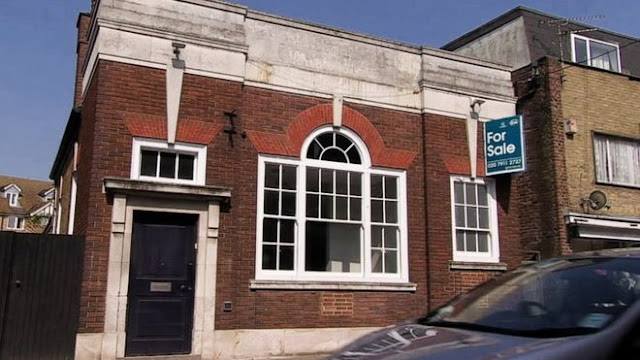More than 600 bank branches have
closed across Britain over the past year, with rural areas worst
affected, according to figures obtained by the BBC.

Parts of Wales, Scotland and south west England lost the most per population between April 2015 and April 2016.
Five of the top 10 areas losing banks are in Wales: Powys, Denbighshire, Gwynedd, Conwy, and Carmarthenshire.
The banks said that demand for branches was falling, as more people switch to banking online.
The
data - obtained by BBC Breakfast - came from the big six High Street
banks: Lloyds, Royal Bank of Scotland (RBS), HSBC, Santander, Barclays
and the Co-operative.
Online banking
Over the last year, RBS closed the most branches - 166 - followed by HSBC with 146 (see chart below).
In
total, about 3,000 branches have shut over the last decade, according
to the Campaign for Community Banking Services, leaving around 8,000
now.
Aside from rural areas, many closures occurred in commuter
towns, where customers are more likely to do branch banking near their
place of work, or use telephone or online banking.
The
seaside town of Birchington-on-sea in Kent has lost three banks in the
last year, with the last branch due to close next month.
David Hart, who runs a pet shop in the town, now has to travel to do his banking.
"I have to spend half an hour - maybe 45 minutes, even an hour sometimes, just driving to the nearest bank to get my coinage."
The banking chains have decided to close branches in different parts of the country
"We never take the decision to close branches lightly," a spokesperson for HSBC said.
"The
way we bank is changing very quickly, and with an increase in the use
of online and telephone banking over the past few years, use of branches
has fallen significantly."
The figures do not include new openings.
However,
Metro Bank is the only lender to open a significant number of branches.
It has opened 41 in the last six years, with a further 59 expected by
2020.
Daily log-ins
Figures
from RBS show that over-the-counter transactions have fallen 43% since
2010. At the same time, online and mobile banking have increased
four-fold.
"We review our branch network regularly to make sure
the services we provide are appropriate for each local community, based
on our customers' usage and other ways to bank in the local area," an
RBS spokesperson said.
"Where we do have to make the difficult decision to close a branch, we will always tell our staff and customers first."
The
British Bankers' Association - which represents all the major High
Street names - said transactions in branches were down 6% over the last
year.
On the other hand, there were about 9.6 million daily log-ins to online banking.
'11,500 branches'
Campaigners argue that losing a bank branch can be debilitating for communities.
The Federation of Small Businesses (FSB) wants greater consideration to be taken whenever a branch is closed.
"In
the unfortunate event that a closure takes place, customers must be
redirected to appropriate banking services," said the FSB's chairman
Mike Cherry.
Under the current rules, banks considering closures
already have to investigate alternative arrangements, as part of a
12-week consultation process.
But those rules are to be reviewed by Prof Russel Griggs. He is expected to publish recommendations by the end of this year.
The
charity Age UK said that closures could affect older customers more
severely. Such customers are more likely to be using traditional
over-the-counter banking.
Thousands of people in rural areas do not have internet access anyway.
Basic banking is available at 11,500 branches of the Post Office, which offers a bigger network than all the High Street banks put together.













No comments:
Post a Comment